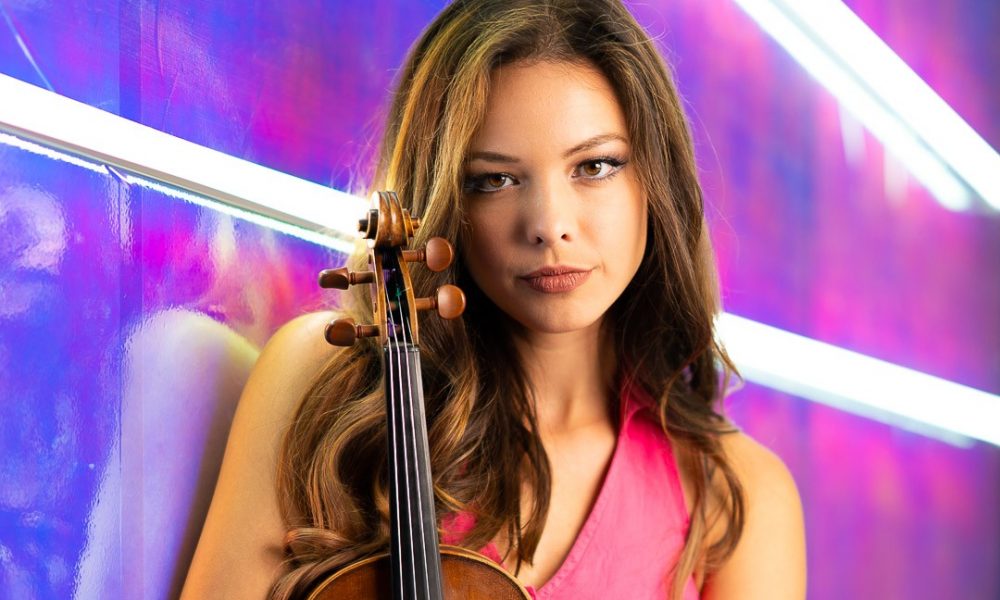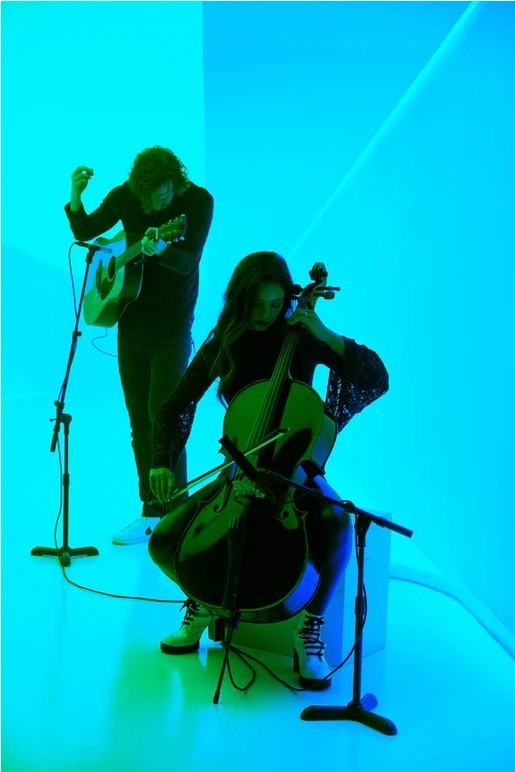

Today we’d like to introduce you to Lauren Conklin.
Alright, so thank you so much for sharing your story and insight with our readers. To kick things off, can you tell us a bit about how you got started?
Growing up in Nashville, I was really lucky to be surrounded by music from a young age. While my family isn’t musical, they have always been supportive of my musical career, so when I wanted to start learning violin at age 5, my parents signed me up for lessons. At age 9, I got my first gig playing every weekend with a bluegrass band. From them, I learned to improvise and play without sheet music (sometimes without even knowing the song!), which has been an amazing thing to be able to take with me in the rest of my career. I feel like that was the start of my love of composing, was learning to compose my own fiddle solos on the fly playing with them. I kept performing and touring up until and throughout college. I attended Belmont University and studied violin performance, and after graduating I was lucky to tour around the world, playing stages from the Grand Ole Opry in Nashville to the Royal Albert Concert Hall in London, on TV shows like Good Morning America and the Colbert Show, and just about every kind of venue in between. The whole time I was touring, I was always composing and did a lot of session work and writing string section arrangements for country and pop records when I wasn’t on the road. Eventually, I realized that my heart was really in the creative side of the music process more than the performance side, and I left the road to work fully in composition in 2019. That same year, I got hired to score my first feature film, “As Real As You Make It” (which you can now watch on Amazon!) and fell completely in love with the process of writing music for film. Since then, I’ve continued to score films and started working on video games as well.
Would you say it’s been a smooth road, and if not what are some of the biggest challenges you’ve faced along the way?
I don’t think it’s ever a smooth road when you’re trying to make a career in a creative industry! There are always ups and downs, and you have to get really used to dealing with rejection. The biggest struggle in switching from a fairly successful career as a touring musician to being a composer is feeling like I started over in a lot of ways. While I’ve always written music, and the skills are there in a lot of capacities, I spent the first 27 years of my life building relationships and working in the performance side of the music industry. When I made the switch, I started from the bottom in terms of networking and have had to rebuild my professional community from the ground up. While that’s definitely a challenge, it’s also so exciting to have opened the door to a whole new circle of creatives and I’ve made some beautiful new friendships getting to integrate into this community of composers and filmmakers.
Can you tell our readers more about what you do and what you think sets you apart from others?
Since I grew up as a touring fiddle player and spent a lot of time performing in bluegrass, Celtic, and world folk traditions, my work is heavily influenced by those melodies and modalities. As a composer, my sound draws a lot of inspiration from the musical cultures I visited and studied during my time as a performer, and I love using lots of string instrument textures and being able to draw on my background as a string arranger. I think my ability to authentically tap into that musical language gives my writing a unique edge – like speaking a second language, the only way to do it and sound like a native speaker is to spend a lot of hours immersed in it, and I’ve put in those hours in musical traditions that aren’t as commonly studied in composition schools. I also performed in orchestras for most of my life, and that helped me to internalize a lot of classical orchestral writing techniques – to be able to feel internally, “okay, if flutes have the melody, this is what the brass and strings should be doing” kind of things. Combining the classical and folk worlds in my writing to create a unique, recognizable sound is one of my favorite things to do.
Alright, so to wrap up, is there anything else you’d like to share with us?
In addition to my work as a composer, I’m really proud to be an advocate for mental health. I founded a non-profit called Mental Health Initiative (www.mentalhealthinitative.info) and still serve as the president of the board. Our organization helps people who are suffering from severe or recurring mental illness access specialized or long-term treatment. We believe that no one should have to suffer due to an inability to pay for treatment. Opening a dialogue about mental health, helping people find treatment that works for them and working hard to create affordable options is something I’m so passionate about and believe is so important and needed in the world right now. I would encourage anyone who is passionate about mental health to check out our organization and reach out to find out more about how to be a part of the change.
Contact Info:
- Website: www.laurenconklin.com
- Instagram: www.instagram.com/laurenconklinmusic
- Facebook: www.facebook.com/laurenconklinmusic
- Youtube: www.youtube.com/laurenconklin
- Other: www.mentalhealthinitiative.info

















